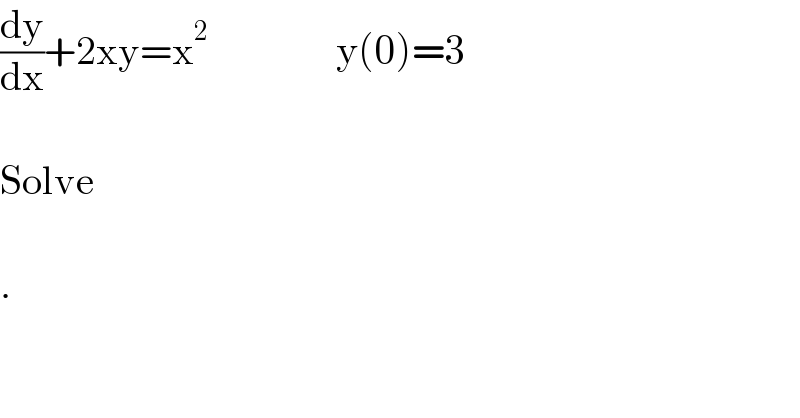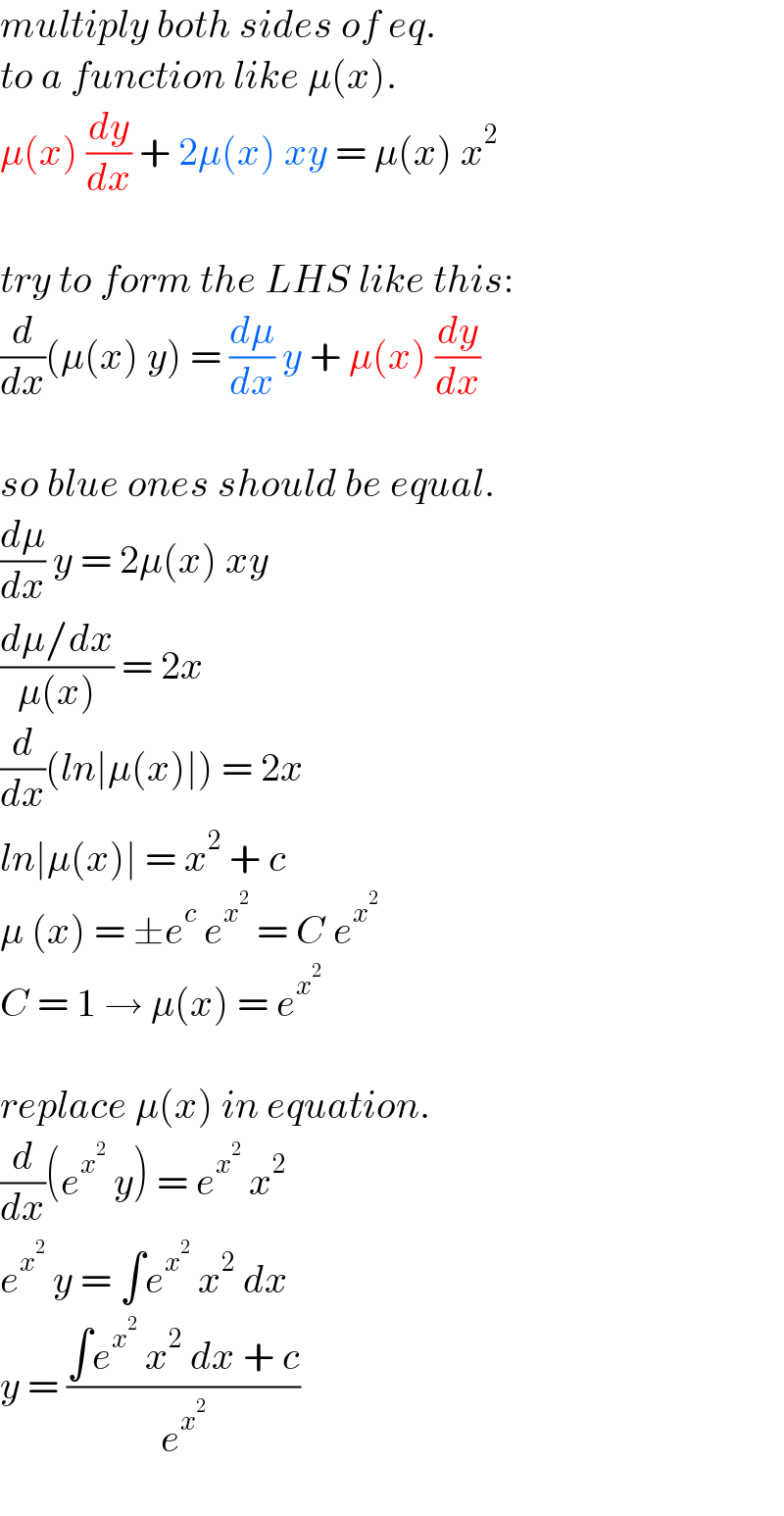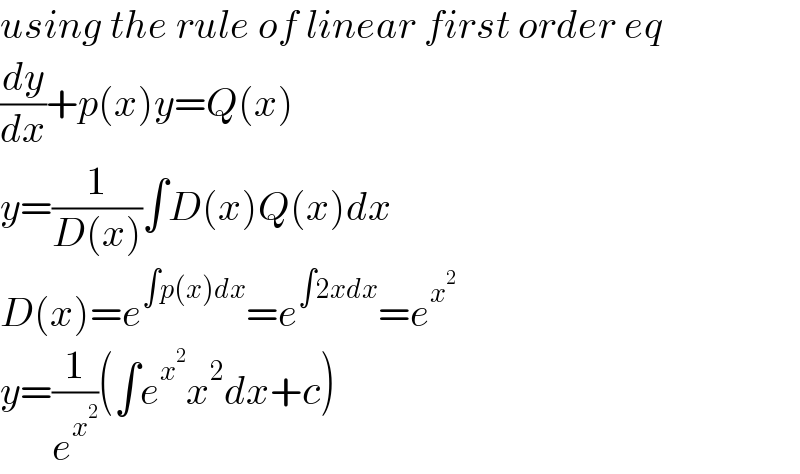
Question and Answers Forum
Question Number 181618 by Mastermind last updated on 27/Nov/22

Answered by hmr last updated on 27/Nov/22

Answered by ali009 last updated on 28/Nov/22

| ||
Question and Answers Forum | ||
Question Number 181618 by Mastermind last updated on 27/Nov/22 | ||
 | ||
Answered by hmr last updated on 27/Nov/22 | ||
 | ||
| ||
Answered by ali009 last updated on 28/Nov/22 | ||
 | ||
| ||